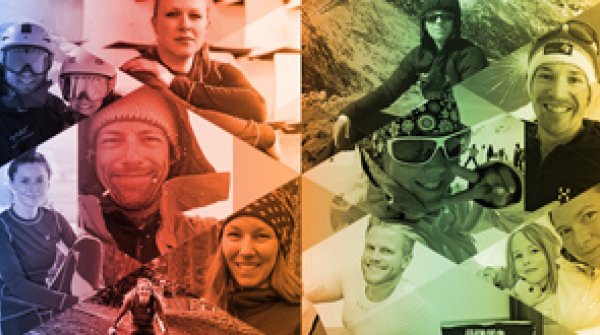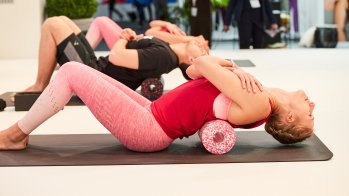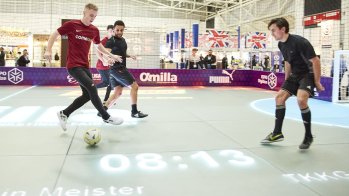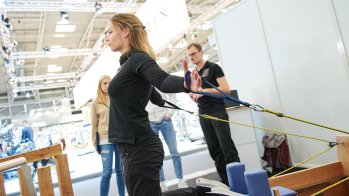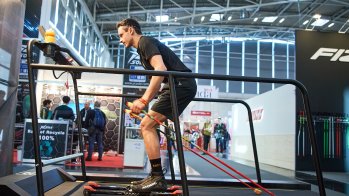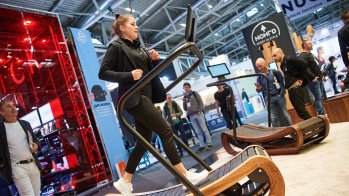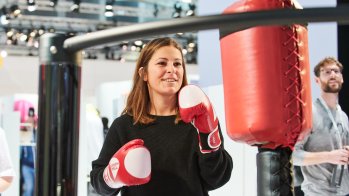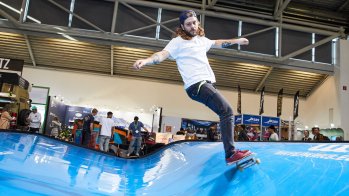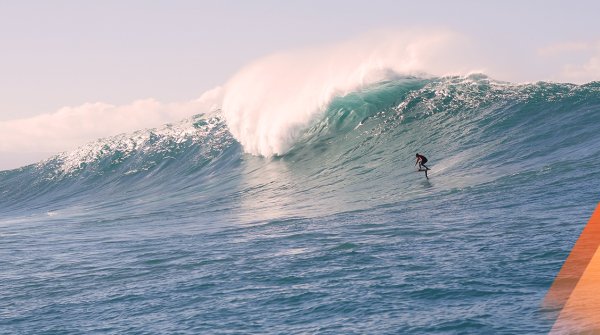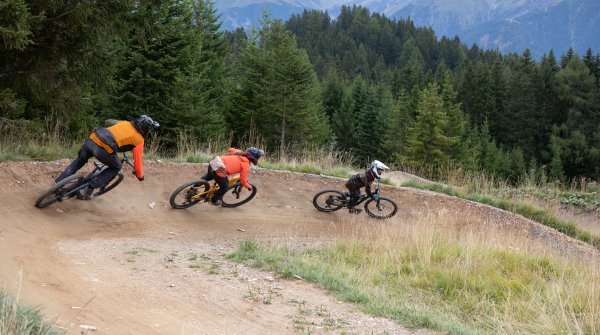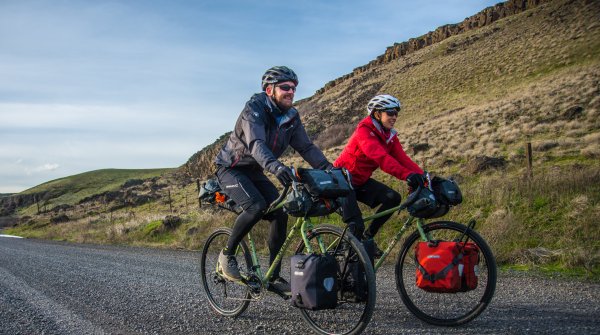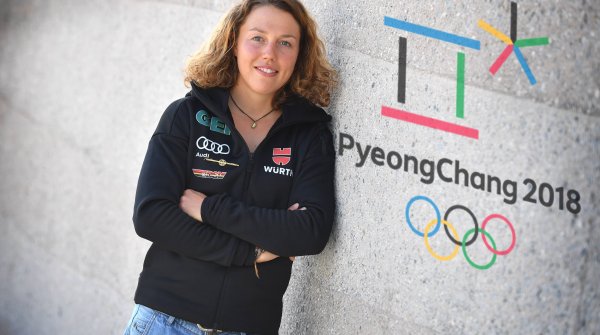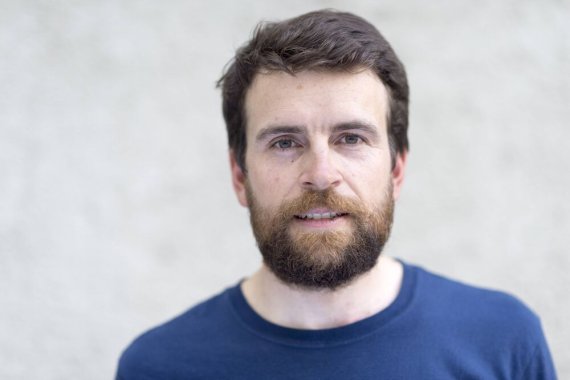
ISPO.com: In the past three years you have set three world records for ultra-long distances in cycling. You attach great importance to cycling without an accompanying vehicle and support team. Why is it so important to you to be on your own?
Jonas Deichmann: I am all about adventure. I do this to experience something new every day, with an escort vehicle that is missing. The support team in the vehicle solves all problems. I could be much, much faster with an escort vehicle but would not enjoy it.
You were Sales Manager at an IT company until 2018, why did you decide to become an extreme sportsman?
I just like life on the bike better here I feel alive. When I drive from the North Cape to Cape Town, I wake up in the morning in my tent and know today I will experience something I have never experienced before. And when I'm old, I'll have lots of happy memories. So I explained to my boss that I would rather sit on my bike than come to the office in a suit and resigned.
Where do you sleep at night? It's not like they have anyone to book them a hotel.
I never know in advance whether I will have tailwind or headwind but the wind has an enormous effect on my performance. In fact have to get as far as I can every day. That means I can't plan ahead. If it turns out that I come to a city in the evening where a hotel is, I take it.
Actually this is the case in 20 percent of the nights. Otherwise I lie down somewhere away from the road, behind a tree, behind a gas station, in a ditch - where there is a nice place. I am often invited by locals. In Africa I often slept in police stations for security reasons.
Are there any sleeping places that you remember especially?
Oh, yeah. One night I was invited to Sudanese gold diggers to sleep under the Sahara sky, 800 kilometres from the next town. Then I spent one night in a prison cell in Egypt. There is a police checkpoint every 30 kilometres, as the Egyptians are very afraid of terrorist attacks on tourists. So they wanted to load my bike onto a pickup truck and drive me to the next hotel.
I couldn't explain to them that I wanted to ride every inch by bike. Finally we agreed that I would sleep in a cell with the door open. In Botswana I wanted to camp on the grounds of a police station. To drive away wild animals, I wanted to make a fire. But it had been raining. Therefore I had to camp in a storage room of the station. That was my luck - in the night a lion came into the camp and ate a dog.
How do you prepare for a tour?
I don't have a flat, I live on the bicycle. I give many motivational speeches to companies and go on expeditions, travelling from one event to another. At night I spend the night with friends or bivouac in a tent. In this way, more than 50,000 kilometres a year come together. In fact I do not have a special training plan. I just ride my bike really a lot.
What do you have on your bike?
I'm all about being a minimalist - otherwise you're not fast. I have a tent with me, a sleeping bag, a sleeping mat, two jerseys, two cycling shorts - one I wear, the other is in the saddlebag to dry. Also tools, two GoPro cameras and hygiene articles. I even cut my toothbrush in half to save weight.
On tours you have a requirement of 10,000 calories per day. This is three to four times the amount that most of us consume in a normal working day. How can you take in this amount without an escort vehicle?
This is the biggest challenge. I eat what I find and a lot of it. In Europe, things are still going relatively well. There are supermarkets and gas stations where you can shop. The truth is that any nutritionist would throw his hands up in horror about my diet. I eat a lot of chocolate bars and cookies, bananas are also good. In Africa it is difficult, there is really nothing to eat. I lost 10 kilos in Sudan and Ethiopia.
#beactive - The ISPO Munich 2020 in Pictures
How many food poisonings do you get on average on a journey across two continents?
On the Eurasia and Pan-America tours one each. On the last tour in Africa I had three: one in the Sahara, one in Ethiopia, one in Zambia. I then take charcoal tablets and just keep driving and ignore them. Because even food poisoning is largely a mental matter.
Really? Most people would say it's mostly an intestinal thing...
I have already driven 250 kilometres a day five or six times with food poisoning. That's how I know it works. Unless a doctor tells me that I risk long-term damage, I just keep going.
But there are no doctors where you're going...
Maybe it's just as well. Of course the doctors tell you that you can't go on - they are not sportsmen.
How do they orient themselves on their tours?
Navigation is very, very simple. In Africa there is actually nothing asphalted off the main road. There is for example a sign at the side of the road saying "Nairobi 800 km" and I just follow it.
Isn't it lonely on a tour like this?
When I am out in nature, I feel no loneliness. I once lived in Munich and when I was alone in my apartment in the evening I felt lonely. Otherwise I distract myself by singing on the way. I have five songs that I know by heart and then sing in an endless loop. For example, when I camp. „Go solo" by Tom Rosenthal or „Nothing else matters" by Metallica to motivate me when I ride up an alpine pass.
In which situation on your travels were you most afraid?
In traffic - by far the most dangerous thing is cars. I was really scared in Russia. Then a truck passed me and the outside mirror touched my shoulder. After that I had problems to focus for two days. Ten centimeters more and...
What do you learn on such long journeys?
For myself, I have learned that you can do much more than you first think. The hardest thing is to get to the starting line and try. Also, that one should not believe the picture that people make of some countries. The nicest people I met in Sudan and Iran. People all over the world just want to live in peace and take care of their families. Wars and conflicts take place between governments. You have to make a place for yourself.
And what will be your next adventure?
I have a press conference on 22 February to announce this. I can say this much: it is not just cycling and it is much more difficult than anything I have done so far.
- ISPO awards
- Mountain sports
- Bike
- Design
- Retail
- Fitness
- Health
- ISPO Job Market
- ISPO Munich
- ISPO Shanghai
- Running
- Brands
- Sustainability
- Olympia
- OutDoor
- Promotion
- Sports Business
- ISPO Textrends
- Triathlon
- Water sports
- Winter sports
- eSports
- SportsTech
- OutDoor by ISPO
- Heroes
- Transformation
- Sport Fashion
- Urban Culture
- Challenges of a CEO
- Trade fairs
- Sports
- Find the Balance
- Product reviews
- Newsletter Exclusive Area
- Magazine

